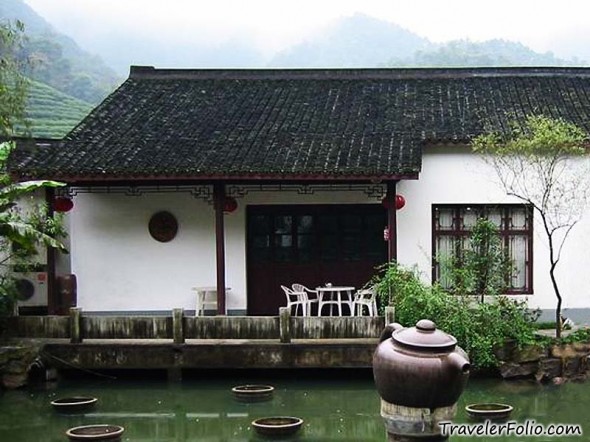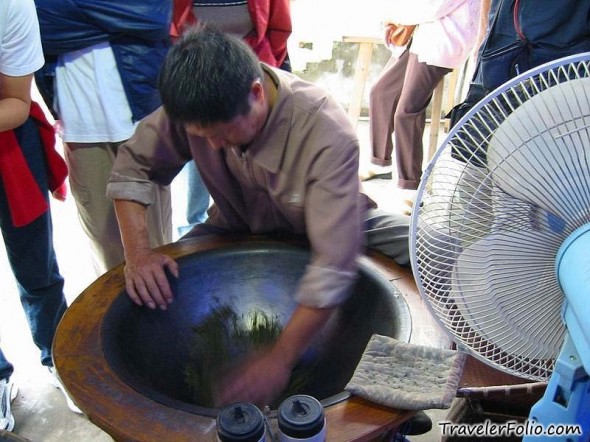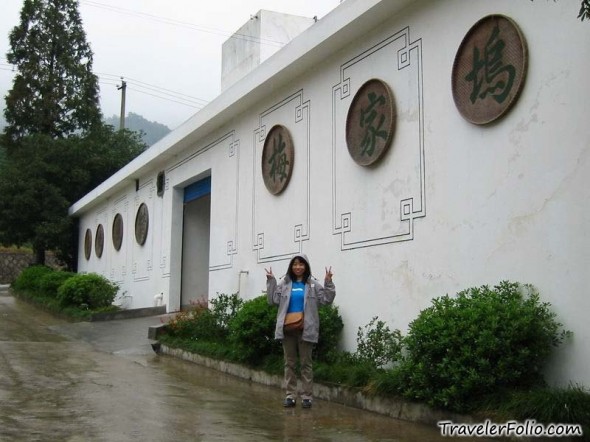In Hangzhou (杭州), don’t forget to try some Longjing (Dragon Well) tea (龙井茶). It is a famous variety of green tea from Hangzhou and is produced pan fried by hand to stop the fermentation process, which refers to drying of the freshly picked leaves, resulting in enzymatic oxidation. This means Longjing tea leaves are unfermented and has the highest concentration of catechins among teas.
We visited Mei Jia Wu Tea Village (梅家坞) for its Longjing Tea. Mei Jia Wu Longjing tea has a light nutty aroma, smell of fresh leaves, very smooth taste and a pleasant flowery aftertaste. The tea leaves are green, flat and slender. One container of half a catty (斤), equivalent to 500 grams in China, costs around S$50 (about US$36). Not cheap. The promoter motivated us by stuffing and compressing the tea leaves into one container, to make it look like we got more tea leaves! But remember to tape the container cover, as the “pressured” leaves might “pop” the cover and create a mess in your bag!

This man must have mastered the skill of iron hand! He was frying the tea leaves with his hand.


Next: West Lake, Hangzhou!

A few years ago, I was diagnosed in Bangkok with multiple polyps in both my stomach and colon. They were not cancerous at the time, but I was advised to have them removed at my convenience.
For almost one year now, I have been drinking Longjing tea that I purchased on a trip to Hangzhou.
Two weeks ago, I repeated my colonoscopy and endoscopy to have the polyps removed. The polyps were already gone!
I strongly believe that the antioxidant effects of this tea are responsible for my improved health. The doctor agrees.